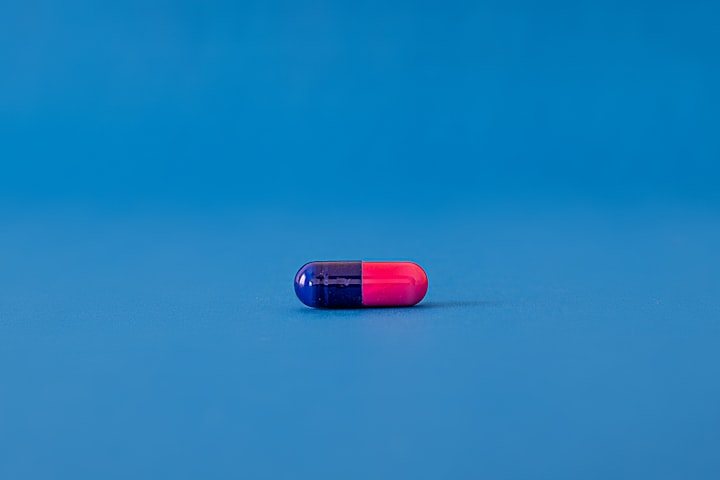Stop taking the pill: what to watch out for?
Change of contraceptive, desire to have children: What happens in the body after stopping the pill?

How practical, this pill! The menstrual period comes so punctually that you could set the clock accordingly. If you want, you can save yourself the period entirely by not taking a break at the end of the month of taking. Spontaneous sex without fiddling with condoms or contraceptive foam, often beautiful skin and, above all, no mood swings, no annoying headache before the days: why should you change this wonderful state - provided you can tolerate the pill? The best reason for sure: Gradually, women want a baby.
Many women express another motive for stopping the pill when they have been using hormonal contraception for a long time: "They want to feel better, want to know again how their natural cycle works," says Doris Scharrel, gynecologist in Kronshagen. Away with the pill! But what is happening in the body now? How long will it take until everything has settled down again? And: can you just leave the pill? "You should take the opened monthly pack to the end," advises gynecologist Scharrel. "Otherwise there will be intermenstrual bleeding and you will no longer have an overview of where you are in your cycle."
Change is a problem for the body
If you then leave the pill completely, this can initially bother the body. Because the estrogens and progestins from the pill act on the whole organism. If they fall away, you first fall hormonally into a hole. Some women are now increasingly losing their hair - but this is settled again as soon as the hormone balance has leveled off. Some feel a headache before the days or feel irritable. And some get pimples. "Usually the first menstrual period is delayed by a week after stopping the pill," says Scharrel. After about a month, the normal hormonal balance has taken over again. "After six weeks at the latest, the hormones in the pill are broken down and none of them can be found in the blood," says Scharrel.
Natural cycle can be irregular
If from then on the period comes irregularly or you suffer from mood swings, this has nothing to do with the long-term effects of the pill. The body simply settles back to its own rhythm, in which it was before, including hormonal ups and downs. "Think back briefly to the time before the pill and remember how your body reacted back then," advises Scharrel to her patients. How was the cycle: regular or rather unpunctual? Did you suffer from breast tenderness or a bad mood before the days? Or did everything go smoothly? Then it will probably happen again now.
Doris Scharrel is a gynecologist and 2nd chairwoman of the professional association of gynecologists in Schleswig-Holstein
Doris Scharrel is a gynecologist and 2nd chairwoman of the professional association of gynecologists in Schleswig-Holstein
Because the pill ensures one thing above all else: an even hormonal balance. Mood swings, because shortly before your period your mood rushes into the basement? "The pill often fixes that," says Scharrel. "Sensitive women feel that they change with the pill," the expert knows. "Some say they feel slightly subdued, like under a hood of haze." If you stop taking the pill, surprisingly, your senses of taste and smell often change too.
Pregnancy possible immediately
Important to know: If you are planning a baby, you have to expect to become pregnant right away. "It is a total mistake to believe that it takes up to a year for a woman to be fully fertile again," says Scharrel. In any case, a couple should use contraception until the first natural bleeding has occurred. The reason: "Only then has the mucous membrane of the uterus built up again to its normal size," says Scharrel. Progestin-based pills - most of them are today - ensure that the mucous membrane only consists of a thin film. If a fertilized egg nestles here, the risk of miscarriage increases.
Sometimes fertility increases
In some cases, the pill even ensures that fertility increases. Women with the common hormone disorder PCOS (polycystic ovarian syndrome) produce too much of the male hormone testosterone. This can make it difficult to get pregnant. Special contraceptives - antiandrogenic pills - block the receptors for testosterone for up to three months after you stop taking the pill. "Affected women who rarely or never have their menstrual period after stopping the pill get the advice of their gynecologist in some cases to continue taking the anti-androgen pill for six months to regulate," says Scharrel.
If you want to stop taking the pill, you should be sure beforehand. "Don't take three months and then start again, that doesn't help," says Scharrel. Because dangerous side effects such as an increased tendency to thrombosis occur especially at the beginning of the intake. In addition, in some cases the pill does not provide reliable contraception in the first month of use.
Because the pill ensures one thing above all else: an even hormonal balance. Mood swings, because shortly before your period your mood rushes into the basement? "The pill often fixes that," says Scharrel. "Sensitive women feel that they change with the pill," the expert knows. "Some say they feel slightly subdued, like under a hood of haze." If you stop taking the pill, surprisingly, your senses of taste and smell often change too.
If you want to stop taking the pill, you should be sure beforehand. "Don't take three months and then start again, that doesn't help," says Scharrel. Because dangerous side effects such as an increased tendency to thrombosis occur especially at the beginning of the intake. In addition, in some cases the pill does not provide reliable contraception in the first month of use
About the Creator
Sarmad Mayo
If you are looking for a New side Hustle, Selling Feet Pictures is a lucrative venture for you to start Today.
Sell Feet Pictures on FunwithFeet






Comments
There are no comments for this story
Be the first to respond and start the conversation.